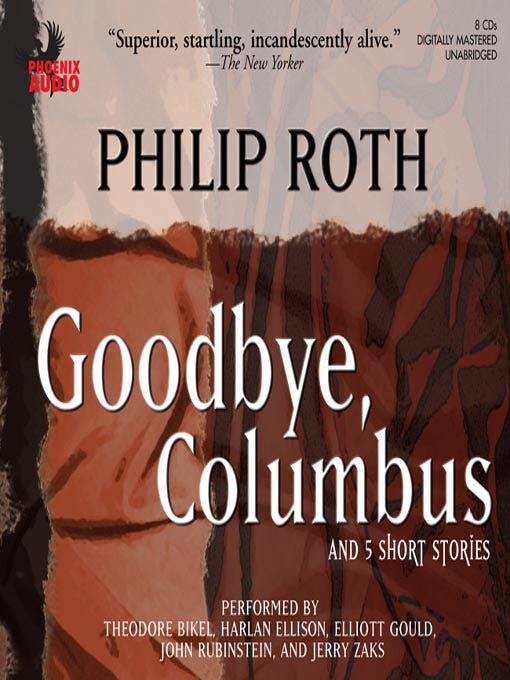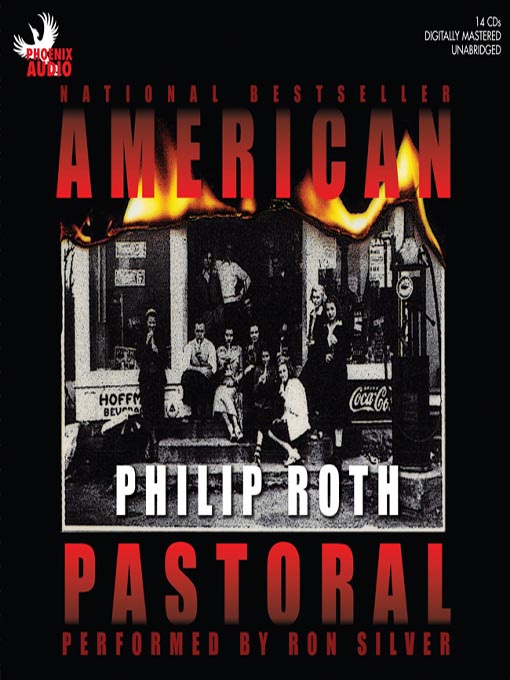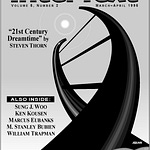Welcome to the second episode of Spoken into the Ether, the podcast disguised as an auditory delivery mechanism for my short stories. “Limits,” published in Carve Magazine, dates back to 2008, but its origins go back even further, to the early spring of 1990. It involves two seniors in high school, Joe and Chuck, and their collegiate futures. Hilarity and heartbreak ensue. And if you get to the end, you’ll hear a different kind of admission from yours truly.
On a slightly related topic, I have an audiobook recommendation: Philip Roth’s Goodbye, Columbus, his first book. There are two versions of this audiobook; the one I’ve listened to is the older one. Your local library may have it — the cover looks like this (via NYPL):
According to Audiofile, John Rubinstein narrates the titular novella. It’s a fantastic performance. Because I’m a petty listener, I’m always on the lookout for mispronunciations. The only miscue: U of Illinois’s Fighting Illini, which he pronounces as ill-ee-nye (should be ill-lie-nie). 😊
This was the second Roth I listened to. The first was American Pastoral, which also has two versions. I listened to the older one (NYPL, take two):
Narrated by Ron Silver, who recently passed away. I remember him from Reversal of Fortune, where he played the lawyer Alan Dershowitz. Petty mispronunciations: Booton (boon-ton, should be Boon-en), and Goethel (go-ethel, should be Gah-thal).
Listening to this later work of Roth’s in comparison to his first was an interesting experience. I found Goodbye, Columbus to be superior in every way — American Pastoral has this strange framing device where the story of the main character, Seymour “The Swede” Levov, is constructed by Roth’s alter ego, Nathan Zuckerman, you could say in real time. It’s a unique way to execute the plot, in a way giving Roth/Zuckerman absolute control over the character, but that also results in a kind of narrative vacuum. Because we know the story is being constructed, everything that happens feels less important than it should be — it’s all made up anyway, so who cares? Of course, every novel is a made-up story by the writer…so it’s kind of metafiction-y, what Roth is doing. For me, this hurt the book more than it helped.
One thing for sure, Roth’s dialogue was on point from the very beginning of his career. My favorite part of Goodbye, Columbus was Leo Patimkin’s monologue, where he details his exploits as a light bulb salesman. His speech goes on for pages, but I couldn’t get enough of it, and found it better than anything I encountered in American Pastoral.
Which made me wonder about my own career as a novelist — have I improved from my first book (Everything Asian, 2009) to my latest (Lines, 2024), on a purely writing level? Fifteen years is not a long time, but not short, either. I think my plotting skills may have gotten more complex, but honestly, I don’t think I’ve become a better writer, line for line, per se. That seems like bad news, but maybe not. At least I don’t think I’m getting any worse!













